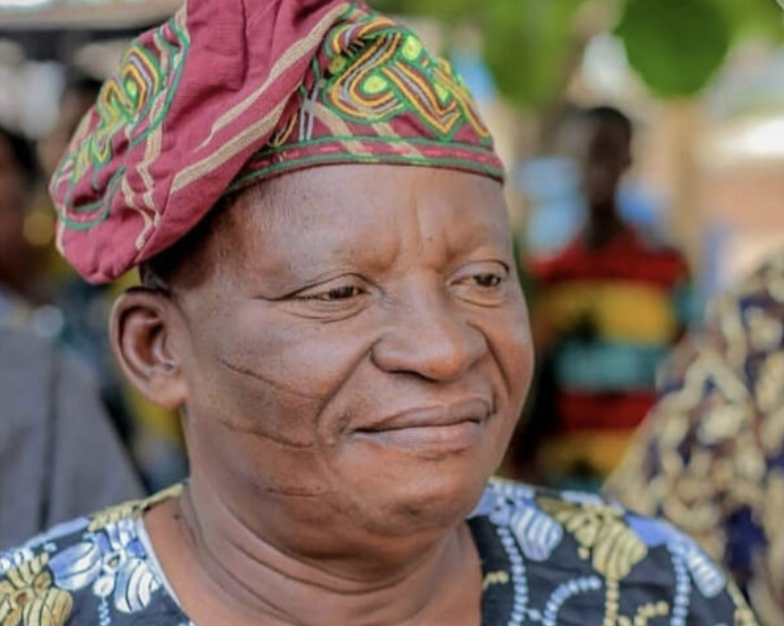Olofa Ina Biography – Chief Adedeji Aderemi, known affectionately as Olofa Ina, stands as a towering figure in the annals of Yoruba culture and entertainment. Born on May 15, 1950, in Ede, Osun State, Nigeria, into the esteemed lineage of Late Chief AbdulSalam Aderemi and Late Madam Aisha Aderemi, he was destined to leave an indelible mark on the world of theatre and film. His life, a rich tapestry woven with cultural heritage, artistic passion, and educational pursuits, exemplifies a deep commitment to preserving and celebrating the Yoruba legacy. This biography delves into the life and achievements of a man who was not only a celebrated artist but also a guardian of tradition and a beacon of inspiration in the Yoruba community.
Early Life and Background
Chief Adedeji Aderemi, affectionately known as Olofa Ina, was born into a world of tradition and culture in Ede, Osun State, Nigeria, on May 15, 1950. His parents, the late Chief AbdulSalam Aderemi and the late Madam Aisha Aderemi, were prominent figures in the Jagun-Olukosi compound. Born during the reign of Oba John Adetoyese Laoye, the then Timi of Ede Land, Aderemi’s early life was steeped in the rich cultural tapestry of the Yoruba people.
Educational Pursuits
Chief Adedeji Aderemi’s pursuit of knowledge and skill was a testament to his belief in the power of education and practical wisdom. His academic journey began in the classrooms of St. Peters Anglican Primary School, where, from 1957 to 1962, he laid the foundations of his education. These early years were crucial in shaping his understanding of the world and his place within the Yoruba community.
In 1963, Aderemi embarked on the next phase of his educational journey at Baptist Secondary Modern School in Ode-Omu. During the two years he spent there, he not only excelled in academics but also began to show an early interest in the arts and culture, which would later define his career. A greater understanding of his cultural heritage and a greater respect for his people’s traditions were characteristics of this time period.
Aderemi chose a route that was less taken by his peers after completing his secondary education. From 1965 to 1970, he apprenticed at Olukorede Furniture Industry, diving into the world of carpentry and joinery. This experience was more than just vocational training; it was a journey into the heart of Yoruba craftsmanship. Here, he learned the value of patience, precision, and creativity, skills that would greatly influence his artistic work in theatre and film.
Aderemi’s time at Olukorede was not just about mastering the tools and techniques of carpentry. It was a period of self-discovery and personal growth. He learned to balance the theoretical knowledge from his formal education with the practical skills of his trade. This unique blend of academic and practical knowledge equipped him with a diverse skill set that he would later apply in his artistic endeavors.
The years spent in formal and vocational education played a significant role in shaping Chief Adedeji Aderemi’s character and career. They instilled in him a lifelong love for learning and a deep respect for the practical skills that are often overlooked in traditional education. His journey through the realms of academia and craftsmanship highlights the importance of a well-rounded education, blending theoretical knowledge with practical skills. It is this combination that would later make him a master storyteller, an artist, and a cultural icon in the Yoruba community.
Career and Achievements
The Rise of Olofa Ina Theatre Group
In 1972, Aderemi founded the Olofa Ina Theatre Group, marking a significant turn in Yoruba theatre history. Collaborating with artists like Erinfolamin, Dasofunjo, Gbolagade Akinpelu, and Oyetunji, he created a platform that redefined the portrayal of Yoruba history.
Pioneering Productions
The group’s performances, often aired on Nigerian Television (NTV) Ibadan in the 1970s, focused on historic Yoruba figures like Basorun Ogunmola, Balogun Ibikunle, and Aare Kurunmi of Ijaye. These productions were not just entertainment; they were cultural narratives, weaving the rich tapestry of Yoruba history and tradition into the fabric of Nigerian entertainment.
Preserving Yoruba Heritage
Aderemi’s work extended beyond theatre; he was a custodian of Yoruba culture. His mastery of Yoruba proverbs and idioms was unparalleled, making him a revered figure in both theatre and film. His dedication to cultural preservation earned him widespread acclaim and cemented his status as a cultural icon.
Legacy and Impact
Chief Adedeji Aderemi’s contribution to Nigerian theatre and film is immeasurable. He was not just an actor or a playwright; he was a guardian of Yoruba culture and tradition. His performances imbued with historical significance and cultural depth, have left an indelible mark on the hearts of many.
